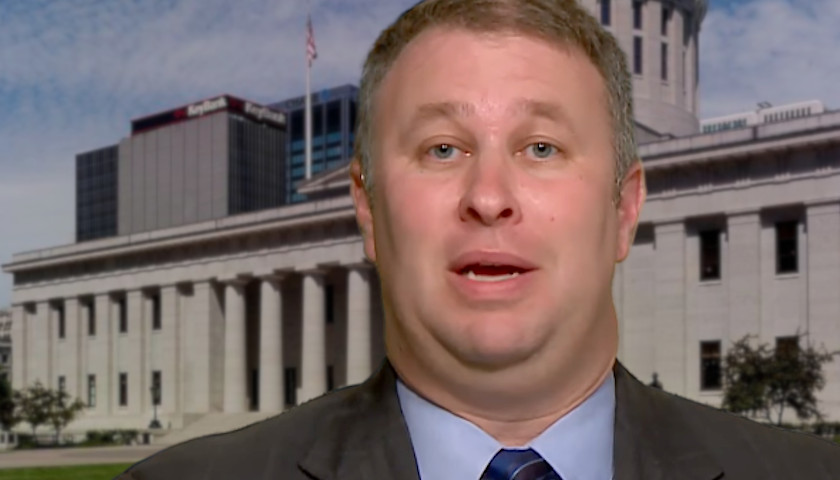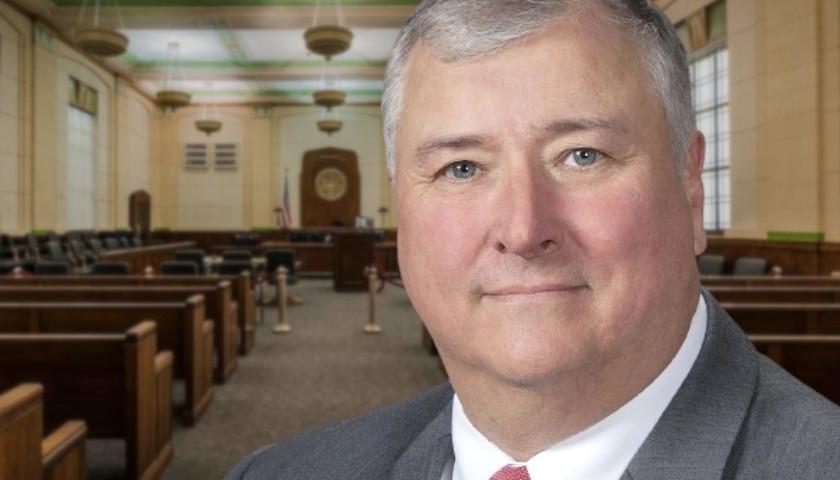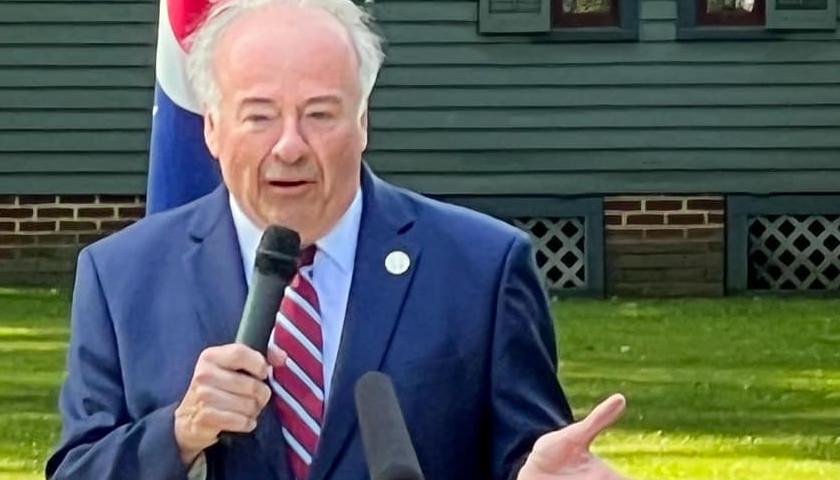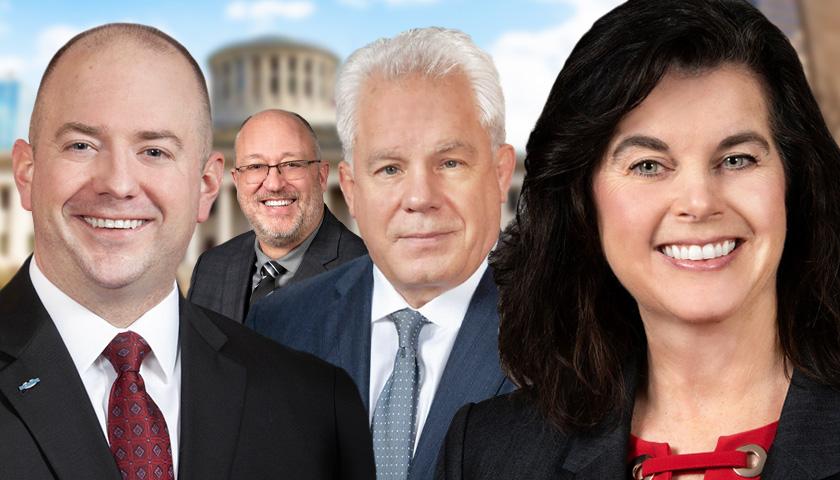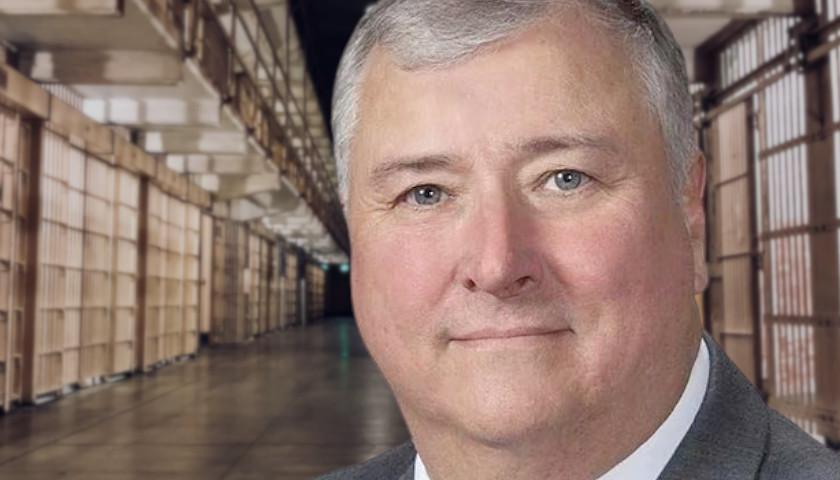by Robert Girard
FBI Agent Blane Wetzel testified in court again Monday providing further evidence in the ongoing racketeering trial against Larry Householder, former Ohio House Speaker, and Matt Borges, a lobbyist and former Ohio GOP chair.
Both Householder and Borges have pleaded not guilty to charges in what prosecutors describe as a $61 million bribery scheme that – per U.S. Attorney for the Southern District of Ohio David DeVillers – is “likely the largest bribery–money laundering scheme ever perpetrated against the people of Ohio.”
The accused, per a criminal complaint built off more than 250 subpoenas of bank, phone and text records, funneled millions from FirstEnergy Corp. (NYSE: FE) and others to help influence the passing of, and afterward hinder the repeal of, Ohio House Bill 6 (HB6) – a contentious Ohio House Bill which included a $1.3 billion nuclear bailout passed by Ohio lawmakers in July, 2019.
Under House Bill 6, a new monthly surcharge was added to bills of all Ohio electricity customers (from less than $1 for residential customers to $2000+ for large plants) from 2021 until 2027. Of the $170 million collected each year from the new surcharge, most all ($150 million) was to go to Akron-based FirstEnergy Solutions – a subsidiary of FirstEnergy Corp. – to bail out its two financially-woed Ohio nuclear power plants.
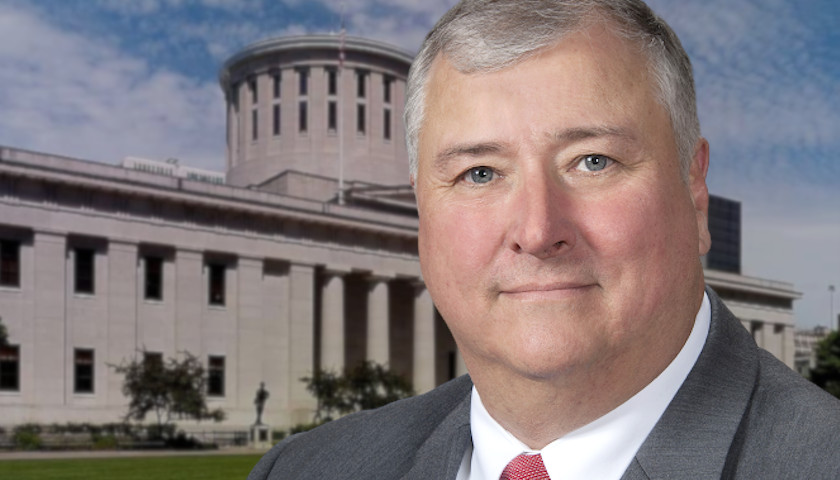
Critics of the then-proposed bill united from within environmental groups, fossil-fuel and renewable energy companies, and small-government activist groups. Supporters included nuclear-power advocates, labor unions, and officials from districts near the plants. The bill’s highest-profile supporter, at the time, was then-House Speaker Larry Householder.
The federal complaint asserts a years-long bribery arrangement between FirstEnergy Corp., Householder and others, to build support for Householder’s House speaker run and to then help pass the nuclear bailout law. Householder won the speakership in January 2019, and the bailout passed six months later. The prosecution alleges Householder personally received as much as $400,000 for his successful political influence.
FBI agents arrested Householder in June of 2020 as an alleged key player in the charged scheme. Also arrested were Borges, Householder adviser Jeffrey Longstreth and lobbyists Juan Cespedes and Neil Clark. Longstreth and Cespedes have pleaded guilty and are set to testify as witnesses against Borges and Householder. Clark was found dead last March in Florida, a single gunshot wound to his head, in what has been declared a suicide by Florida authorities. He was wearing a “DeWine for Governor” T-shirt.
According to court documents, the five received millions from March 2017 to March 2020 to finance the passing of House Bill 6. The defendants then also allegedly worked against a ballot initiative to overturn the legislation. The group reportedly received some $62 million via a 501(c)(4) identified as Generation Now from FirstEnergy Corp. and other utilities. Longstreth incorporated Generation Now as a social welfare entity in February 2017 to professedly support energy independence. The FBI and prosecution assert the entity, however, was secretly controlled by Householder to fund pro-HB6 efforts.
Beyond personal payouts, including the supposed $400,000 to Householder, it is alleged funds were also used for bribes to both gather favor for HB6 and to counteract ongoing repeal efforts. This, per testimony on Monday, included gathering intel from within the opposition.
Evidence on Monday focused primarily on covert FBI recordings and video in which Borges offers payment to Tyler Fehrman, a consultant working for the referendum campaign as an HB6 project manager for Advanced Micro Targeting. In the same meeting, in which Fehrman wore an FBI wire, Borges said he would like to know the locations of those trying to collect signatures for the petition to put the referendum on the upcoming November ballot. Borges also asked Fehrman to divulge the total number of signatures gathered on a daily basis. “Say a number and hang up,” Borges explains in the recordings.
FBI Agent Blane Wetzel also produced am image of a check for $15,000 made out from Borges to Fehrman. Emily Glatfelter, assistant U.S. prosecutor, contends Borges wrote that check in exchange for information. Borges, according to Agent Wetzel’s testimony, later texted Fehrman that he shouldn’t tell anyone they talked. In a text message – deleted by Borges but later retrieved by the FBI and shared in court Monday– Borges warns Fehrman “No matter what, don’t tell anyone about our conversations from earlier.”
In addition to information on petitions, it is also alleged funds were used to pay off signature collectors with bribes and plane tickets, petition-gathering companies were paid to stay away from HB6 opponents, and people were paid to physically keep Ohioans away from signature collectors. The FBI has testified First Energy spent more than $67,000 on a private investigator to monitor petitioners who wanted to overturn the bailout. A counterfeit petition drive was also reportedly created to confuse people.
In July, FirstEnergy Corp. agreed to pay a $230 million penalty in an agreement with the U.S. Attorney’s Office for the Southern District of Ohio. The penalty is to be split equally between the U.S. Treasury and the Ohio Development Service Agency for the benefit of Ohio utility customers. FirstEnergy Corp. agreed to pay an additional $3.9 million fine to the Federal Energy Regulatory Commission on December 30, 2022 for reportedly failing to disclose its nearly $94 million in lobbying efforts behind House Bill 6.
The case is expected to run another month at the Ohio Southern District Court. To untangle the full story, federal prosecutors plan to call two co-defendants as witnesses: Longstreth and Cespedes. Future potential witnesses also include current Attorney General Dave Yost, as well as Dave Greenspan of Westlake and Kyle Koehler of Springfield – former state lawmakers.
– – –
Robert Girard is a contributor to The Ohio Press Network.
Background Photo “Ohio Statehouse” by Carol M. Highsmith.

